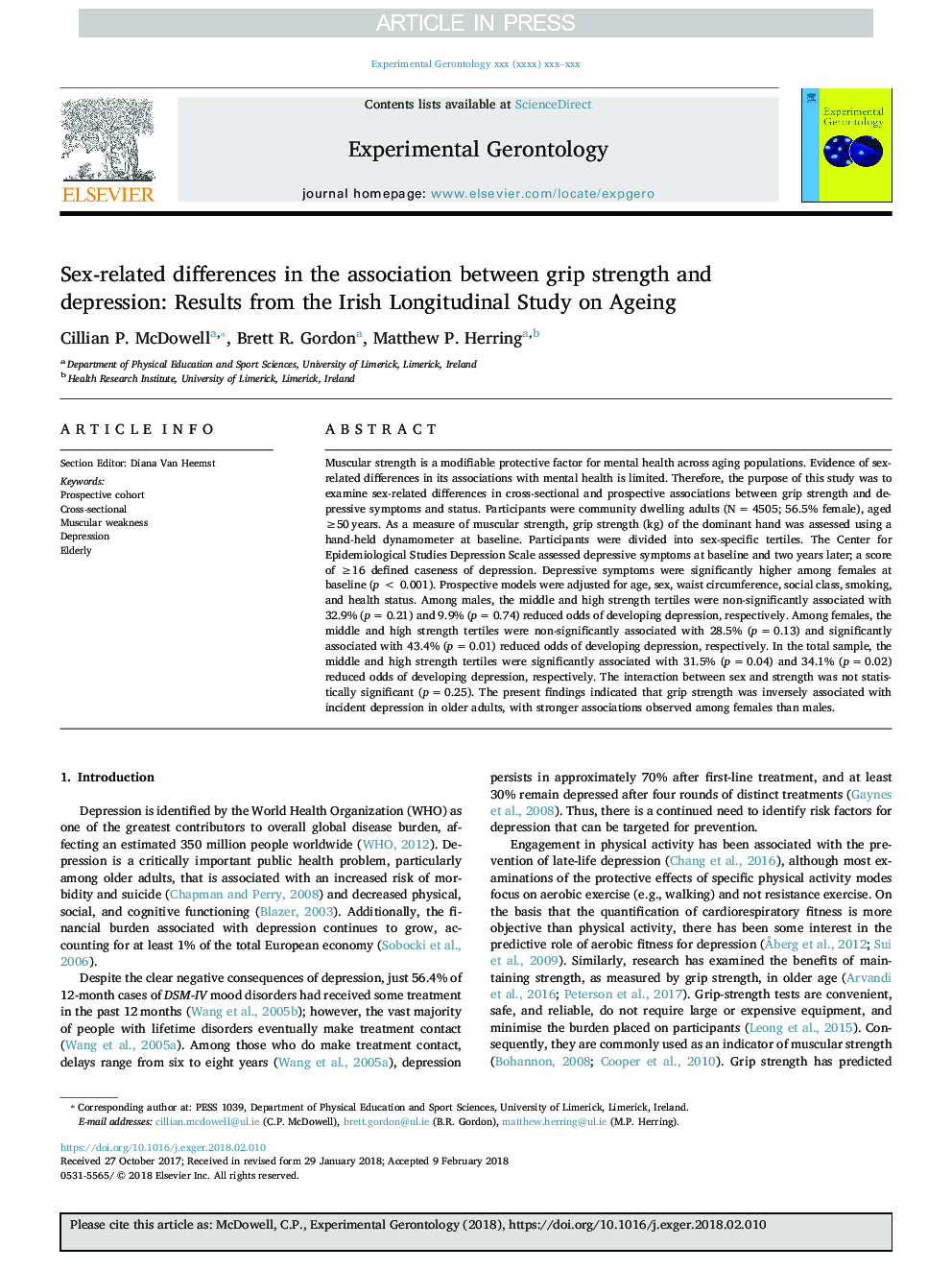| Article ID | Journal | Published Year | Pages | File Type |
|---|---|---|---|---|
| 8262506 | Experimental Gerontology | 2018 | 6 Pages |
Abstract
Muscular strength is a modifiable protective factor for mental health across aging populations. Evidence of sex-related differences in its associations with mental health is limited. Therefore, the purpose of this study was to examine sex-related differences in cross-sectional and prospective associations between grip strength and depressive symptoms and status. Participants were community dwelling adults (Nâ¯=â¯4505; 56.5% female), aged â¥50â¯years. As a measure of muscular strength, grip strength (kg) of the dominant hand was assessed using a hand-held dynamometer at baseline. Participants were divided into sex-specific tertiles. The Center for Epidemiological Studies Depression Scale assessed depressive symptoms at baseline and two years later; a score of â¥16 defined caseness of depression. Depressive symptoms were significantly higher among females at baseline (pâ¯<â¯0.001). Prospective models were adjusted for age, sex, waist circumference, social class, smoking, and health status. Among males, the middle and high strength tertiles were non-significantly associated with 32.9% (pâ¯=â¯0.21) and 9.9% (pâ¯=â¯0.74) reduced odds of developing depression, respectively. Among females, the middle and high strength tertiles were non-significantly associated with 28.5% (pâ¯=â¯0.13) and significantly associated with 43.4% (pâ¯=â¯0.01) reduced odds of developing depression, respectively. In the total sample, the middle and high strength tertiles were significantly associated with 31.5% (pâ¯=â¯0.04) and 34.1% (pâ¯=â¯0.02) reduced odds of developing depression, respectively. The interaction between sex and strength was not statistically significant (pâ¯=â¯0.25). The present findings indicated that grip strength was inversely associated with incident depression in older adults, with stronger associations observed among females than males.
Related Topics
Life Sciences
Biochemistry, Genetics and Molecular Biology
Ageing
Authors
Cillian P. McDowell, Brett R. Gordon, Matthew P. Herring,
